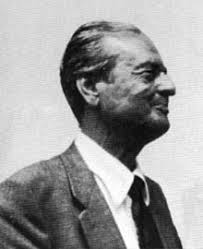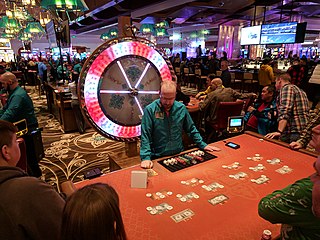
Games available in most casinos are commonly called casino games. In a casino game, the players gamble cash or casino chips on various possible random outcomes or combinations of outcomes. Casino games are also available in online casinos, where permitted by law. Casino games can also be played outside of casinos for entertainment purposes, like in parties or in school competitions, on machines that simulate gambling.

Craps is a dice game in which players bet on the outcomes of the roll of a pair of dice. Players can wager money against each other or against a bank. Because it requires little equipment, "street craps" can be played in informal settings. While shooting craps, players may use slang terminology to place bets and actions.

Gambling is the wagering of something of value on a random event with the intent of winning something else of value, where instances of strategy are discounted. Gambling thus requires three elements to be present: consideration, risk (chance), and a prize. The outcome of the wager is often immediate, such as a single roll of dice, a spin of a roulette wheel, or a horse crossing the finish line, but longer time frames are also common, allowing wagers on the outcome of a future sports contest or even an entire sports season.

Roulette is a casino game which was likely developed from the Italian game Biribi. In the game, a player may choose to place a bet on a single number, various groupings of numbers, the color red or black, whether the number is odd or even, or if the number is high or low.
Spread betting is any of various types of wagering on the outcome of an event where the pay-off is based on the accuracy of the wager, rather than a simple "win or lose" outcome, such as fixed-odds betting or parimutuel betting.
Fixed-odds betting is a form of gambling where individuals place bets on the outcome of an event, such as sports matches or horse races, at predetermined odds. In fixed-odds betting, the odds are fixed and determined at the time of placing the bet. These odds reflect the likelihood of a particular outcome occurring. If the bettor's prediction is correct, they receive a payout based on the fixed odds. This means that the potential winnings are known at the time of placing the bet, regardless of any changes in the odds leading up to the event.
In probability theory, odds provide a measure of the likelihood of a particular outcome. When specific events are equally likely, odds are calculated as the ratio of the number of events that produce that outcome to the number that do not. Odds are commonly used in gambling and statistics.

Bruno de Finetti was an Italian probabilist statistician and actuary, noted for the "operational subjective" conception of probability. The classic exposition of his distinctive theory is the 1937 "La prévision: ses lois logiques, ses sources subjectives", which discussed probability founded on the coherence of betting odds and the consequences of exchangeability.
A martingale is a class of betting strategies that originated from and were popular in 18th-century France. The simplest of these strategies was designed for a game in which the gambler wins the stake if a coin comes up heads and loses if it comes up tails. The strategy had the gambler double the bet after every loss, so that the first win would recover all previous losses plus win a profit equal to the original stake. Thus the strategy is an instantiation of the St. Petersburg paradox.
Subjectivism is the doctrine that "our own mental activity is the only unquestionable fact of our experience", instead of shared or communal, and that there is no external or objective truth.
Vigorish is the fee charged by a bookmaker for accepting a gambler's wager. In American English, it can also refer to the interest owed a loanshark in consideration for credit. The term came to English usage via Yiddish slang which was itself a loanword from Russian.
In gambling, economics, and the philosophy of probability, a Dutch book or lock is a set of odds and bets that ensures a guaranteed profit. It is generally used as a thought experiment to motivate Von Neumann–Morgenstern axioms or the axioms of probability by showing they are equivalent to philosophical coherence or Pareto efficiency.

Sports betting is the activity of predicting sports results and placing a wager on the outcome.

In probability theory, the Kelly criterion is a formula for sizing a bet. The Kelly bet size is found by maximizing the expected value of the logarithm of wealth, which is equivalent to maximizing the expected geometric growth rate. Assuming that the expected returns are known, the Kelly criterion leads to higher wealth than any other strategy in the long run. J. L. Kelly Jr, a researcher at Bell Labs, described the criterion in 1956.

The Big Six wheel is an unequal game of chance, played using a large vertical wheel that can be spun.
The mathematics of gambling is a collection of probability applications encountered in games of chance and can get included in game theory. From a mathematical point of view, the games of chance are experiments generating various types of aleatory events, and it is possible to calculate by using the properties of probability on a finite space of possibilities.

The necktie paradox is a puzzle and paradox with a subjective interpretation of probability theory describing a paradoxical bet advantageous to both involved parties. The two-envelope paradox is a variation of the necktie paradox.

Revenue equivalence is a concept in auction theory that states that given certain conditions, any mechanism that results in the same outcomes also has the same expected revenue.
In gambling parlance, making a book is the practice of laying bets on the various possible outcomes of a single event. The phrase originates from the practice of recording such wagers in a hard-bound ledger and gives the English language the term bookmaker for the person laying the bets and thus 'making the book'.
Credence or degree of belief is a statistical term that expresses how much a person believes that a proposition is true. As an example, a reasonable person will believe with close to 50% credence that a fair coin will land on heads the next time it is flipped. If the prize for correctly predicting the coin flip is $100, then a reasonable risk-neutral person will wager $49 on heads, but they will not wager $51 on heads.












